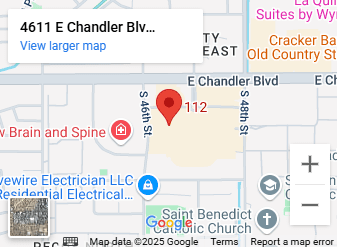Understanding Business Valuation Methods: How They Impact Broker Pricing Strategies
How does a broker’s choice of valuation method justify a sale price adjustment of up to 15%? Business valuation assesses a company’s worth to set realistic asking prices, inform commission structures, and guide negotiation tactics for both buyers and sellers. In this guide, you will discover the core valuation methodologies brokers rely on, the direct influence each approach has on pricing strategies, the qualitative factors that shape broker confidence, real-world examples illustrating price outcomes, common queries about valuation and commissions, and actionable steps for buyers and sellers to harness valuation expertise. By mastering these insights, you gain the clarity to improve deal positioning and enhance transaction outcomes.
Leveraging Business Valuation to Drive Broker Pricing Strategies
Business valuation defines the systematic process used to estimate a company’s economic value, combining financial analysis and market data to inform sale pricing. Brokers use valuation to craft an informed opinion of value, which differs from formal appraisals but serves as the foundation for setting listing prices and advising clients.
Damodaran, A., Valuation: Measuring and Managing the Value of Companies (2022)
This research provides a foundational understanding of business valuation, which is essential for the article’s discussion of broker pricing strategies.
What Does Business Valuation Mean?
Business valuation measures a company’s worth by analyzing its assets, earnings, market comparisons, and risk profile. This process ensures sellers understand the financial leverage they possess and enables buyers to assess fair purchase terms. For example, a technology firm may derive its value from discounted cash flow projections, illustrating future income potential.
Brokers then translate this valuation into an asking price, setting the stage for targeted pricing strategies and effective negotiations.
How Do Brokers Use Business Valuation Differently from Formal Appraisals?
Unlike certified appraisals that follow strict regulatory standards, brokers develop an “Opinion of Value” by blending financial metrics with market insights. Brokers incorporate Seller Discretionary Earnings (SDE) and peer comparables to support asking prices that reflect both quantitative data and real-time buyer sentiment, enhancing negotiation effectiveness.
This broker opinion of value directly informs commission structures and listing recommendations.
Why Is Business Valuation Critical in Setting Broker Pricing Strategies?
Business valuation guides brokers in determining a price range that balances seller expectations with market realities, thereby improving listing accuracy, reducing time on market, and enhancing buyer confidence. A strong valuation basis can support higher listing fees by demonstrating data-driven pricing justification.
Accurate valuations also empower brokers to defend their commission proposals during negotiations.
What Are the Core Business Valuation Methods Used by Brokers?
Brokers rely on three primary valuation approaches—Income, Market, and Asset-Based—each targeting different aspects of a business’s financial profile and influencing pricing strategies in distinct ways.
How Does the Income Approach Work in Business Valuation?

The Income Approach values a business based on its ability to generate future cash flows. By forecasting earnings and discounting them to present value, brokers can justify asking prices tied directly to projected returns. This method builds buyer confidence by quantifying growth potential and risk.
What Is the Discounted Cash Flow (DCF) Method and How Is It Calculated?
The Discounted Cash Flow method estimates value by projecting future operating cash flows, selecting an appropriate discount rate to adjust for risk, and summing the present values of these cash flows. This technique enhances price credibility for businesses with stable growth trajectories.
Valuation Method → Attribute → Impact
| Method | Attribute | Impact on Pricing |
|---|---|---|
| Discounted Cash Flow | Future cash flow projections | Supports higher asking prices by quantifying growth potential |
Brokers use DCF outputs to structure commission tiers that reward higher sale prices.
How Does Capitalization of Earnings Use Seller Discretionary Earnings (SDE)?
Capitalization of Earnings applies a capitalization rate to normalized SDE, yielding a value that reflects both owner benefits and business risk. By adjusting SDE for one-off expenses, brokers enhance the accuracy of price floors and commission estimates.
What Is the Market Approach and How Do Valuation Multiples Influence Pricing?
The Market Approach values a business by comparing it to recent sale transactions of similar companies, applying valuation multiples to the target’s financial metrics to derive a competitive price range. This method grounds broker pricing recommendations in real‐world data.
Rosenbaum, J. & Pearl, J., Investment Banking: Valuation, Leveraged Buyouts, and Mergers & Acquisitions (2020)
This source supports the article’s explanation of how market multiples are used in business valuation and how they influence pricing strategies.
How Are Revenue, SDE, and EBITDA Multiples Applied Across Industries?
Industry variations in revenue, SDE, and EBITDA multiples reflect sector growth rates, profitability benchmarks, and buyer demand. For instance, software businesses often command SDE multiples of 3.5–5×, while manufacturing firms trade at lower multiples reflecting higher asset intensity.
Industry Sector → Multiple Type → Typical Range
| Industry Sector | Multiple Type | Typical Range |
|---|---|---|
| SaaS & Software | SDE Multiple | 3.5×–5× |
| Retail | Revenue Multiple | 0.7× |
| Manufacturing | EBITDA Multiple | 4× |
These benchmarks enable brokers to position asking prices and negotiate commissions aligned with prevailing market norms.
How Does Comparable Sales Analysis Guide Broker Pricing?
Comparable Sales Analysis uses data from guideline transactions to anchor listing prices within realistic market bounds. Brokers leverage this approach to frame commission structures by aligning fees with observed sale multiples in the same industry segment.
When Is the Asset-Based Approach Used in Business Valuation?
The Asset-Based Approach focuses on a company’s net asset value by aggregating tangible and intangible assets and subtracting liabilities, establishing a price floor especially in liquidation scenarios.
What Are Tangible and Intangible Assets in Asset-Based Valuation?
Tangible assets include real estate, equipment, and inventory, while intangible assets encompass intellectual property, customer lists, and brand value. By measuring both, brokers determine a baseline price that protects seller interests during negotiations.
Brokers then set minimum acceptable offers to ensure fee thresholds are maintained.
Which Businesses Benefit Most from Asset-Based Valuation?
Asset-intensive companies, startups with significant intellectual property, and businesses facing restructuring often rely on asset-based valuations to set minimum price floors, ensuring sellers recover core asset value.
Asset-Based valuations safeguard brokers’ commission potential even when market multiples dip.
How Do Business Valuation Methods Directly Affect Broker Pricing Strategies?
Income, Market, and Asset-Based approaches each inform distinct facets of broker pricing—asking price determination, commission structure, and negotiation tactics—by anchoring decisions in financial rationale.
How Does the Income Approach Influence Asking Price and Broker Commissions?
By forecasting cash flow stability, the Income Approach allows brokers to propose an asking price that reflects anticipated returns. As commissions are typically a percentage of final sale price, a higher valuation translates to increased broker earnings.
How Does the Market Approach Shape Broker Expectations and Negotiation Tactics?
Comparable sales data set realistic price ranges, enabling brokers to establish competitive asking prices and defend commission levels. Market multiples offer clear benchmarks during buyer negotiations and enhance credibility.
How Does the Asset-Based Approach Set Minimum Price Floors for Brokers?
Asset-Based valuations deliver a conservative baseline price, ensuring brokers maintain minimum acceptable sale values during negotiations, and secure commission thresholds even in distressed markets.
What Are the Typical Broker Commission Structures Related to Valuation Outcomes?
Brokers commonly adopt one of three models:
- Percentage-based fees ranging from 10% to 15% of sale price.
- Flat-fee retainers combined with success fees.
- Tiered commissions that increase at specific valuation benchmarks.
Each structure aligns broker incentives with valuation outcomes to improve transaction success.
How Do Brokers Use Valuation Data as a Negotiation Tool?
Brokers leverage detailed valuation reports to justify asking prices, counter buyer offers, and uphold commission rates, supporting sellers in achieving targeted sale outcomes.
What Qualitative Factors Beyond Valuation Methods Influence Broker Pricing?
Beyond numeric methods, brokers consider qualitative drivers such as recurring revenue, cash flow quality, market trends, operational depth, and intangible assets to refine pricing and optimize deal structures.
How Does Recurring Revenue Affect Business Valuation and Broker Confidence?
Recurring revenue demonstrates income predictability and lowers investment risk, boosting valuation multiples and broker willingness to negotiate premium prices.
Why Is Cash Flow Quality Important in Business Sale Pricing?
High-quality operating cash flow, distinguished by consistent margins and low volatility, enhances buyer appeal and supports stronger valuations, prompting brokers to set higher listing fees.
How Do Industry Trends and Market Conditions Impact Broker Pricing Strategies?
Economic cycles, buyer demand, and technological shifts directly influence comparable sales data and valuation multiples, guiding brokers to adjust pricing strategies in response to market dynamics.
How Do Business Size, Scalability, and Management Depth Influence Broker Fees?
Larger businesses with scalable operations and experienced management teams reduce perceived risk, leading brokers to confidently negotiate higher commissions and support premium valuations.
What Role Do Intangible Assets Like Brand and Intellectual Property Play in Pricing?
Strong brand reputation, patented technologies, and loyal customer relationships elevate perceived value, prompting brokers to integrate intangible asset valuations into asking price formulations.
What Real-World Examples Illustrate the Impact of Valuation Methods on Broker Pricing?
Case studies demonstrate how method selection shapes sale outcomes. Below are concise examples of broker-driven pricing decisions.
How Did the Income Approach Affect Pricing in a SaaS Business Sale?
A SaaS company with predictable subscriptions achieved a 4.5× SDE multiple under the Income Approach, enabling a broker to set an asking price 20% above baseline market values and secure a 10% commission on a $4.5 million sale.
What Pricing Outcomes Resulted from Market Approach Valuations in Retail Businesses?
A regional retail chain valued at 0.8× revenue through Comparable Sales Analysis closed at $2.4 million, guiding broker negotiations around industry-standard multiples and earning a 8% commission.
How Did Asset-Based Valuation Determine Pricing in an Asset-Heavy Manufacturing Sale?
A manufacturing firm with significant machinery and property assets used an adjusted net asset method to establish a $1.8 million floor price, ensuring broker retention of a 9% fee even when buyer offers fell below market multiples.
What Are Common Questions About Business Valuation and Broker Pricing?
Brokers frequently address inquiries regarding value determination, influencing factors, and fee structures to align client expectations and streamline transactions.
How Do Business Brokers Determine the Value of a Business?
Business brokers determine value by integrating financial metrics—such as SDE, cash flow forecasts, and valuation multiples—with market comparables to develop a robust opinion of value supporting listing prices.
What Factors Most Influence the Price of a Business When Using a Broker?
Key factors include normalized earnings, market multiples, asset valuations, industry trends, recurring revenue stability, and intangible assets like brand reputation.
How Do Business Brokers Get Paid and How Are Fees Structured?
Brokers earn primarily through percentage-based commissions on the sale price, often complemented by upfront retainers or tiered fees tied to valuation milestones.
What Are the Most Common Business Valuation Methods Used by Brokers?
The three primary approaches are the Income Approach (DCF, SDE capitalization), the Market Approach (valuation multiples, comparables), and the Asset-Based Approach (net asset calculation).
How Does Recurring Revenue Affect Business Sale Price and Broker Fees?
Predictable recurring revenue justifies higher valuation multiples and supports increased broker commissions due to reduced buyer risk and stronger sale prices.
What Is the Role of Cash Flow in Business Valuation and Pricing?
Cash flow indicates a company’s financial health and growth potential; brokers prioritize clean operating cash flow to back higher asking prices and commission structures.
What Are Business Valuation Multiples and How Do They Affect Pricing?
Valuation multiples express a business’s value relative to revenue or earnings; they provide clear frameworks for listing prices and guide broker commission negotiations.
How Can Sellers and Buyers Navigate Business Sales Using Valuation Expertise?
Understanding valuation intricacies empowers both parties to negotiate effectively, set realistic prices, and optimize fee arrangements when engaging a broker.
What Questions Should You Ask a Business Broker About Valuation and Fees?
Ask about the methods they employ, comparable transaction data sources, commission structures tied to valuation outcomes, and any retainer fees before engagement.
How Do Legal and Accounting Considerations Affect Business Valuation and Pricing?
Accurate financial statements, compliance with accounting standards, and clear legal title to assets ensure credible valuations and minimize due diligence obstacles during sales.
When Should You Consult a Professional Business Valuation Expert or Broker?
Engage a valuation expert early when preparing for a sale or acquisition to establish realistic price expectations, identify value drivers, and develop negotiation strategies that enhance transaction success.
Business valuation forms the backbone of effective broker pricing strategies, enabling precise asking price formulation, commission structuring, and negotiation leverage. By mastering valuation methods and integrating qualitative factors, sellers and buyers gain confidence in navigating complex transactions. Applying these insights supports better deal outcomes and stronger broker relationships. To advance your business sale journey, partner with an experienced broker or valuation expert who can translate these valuation principles into tangible sale success.




